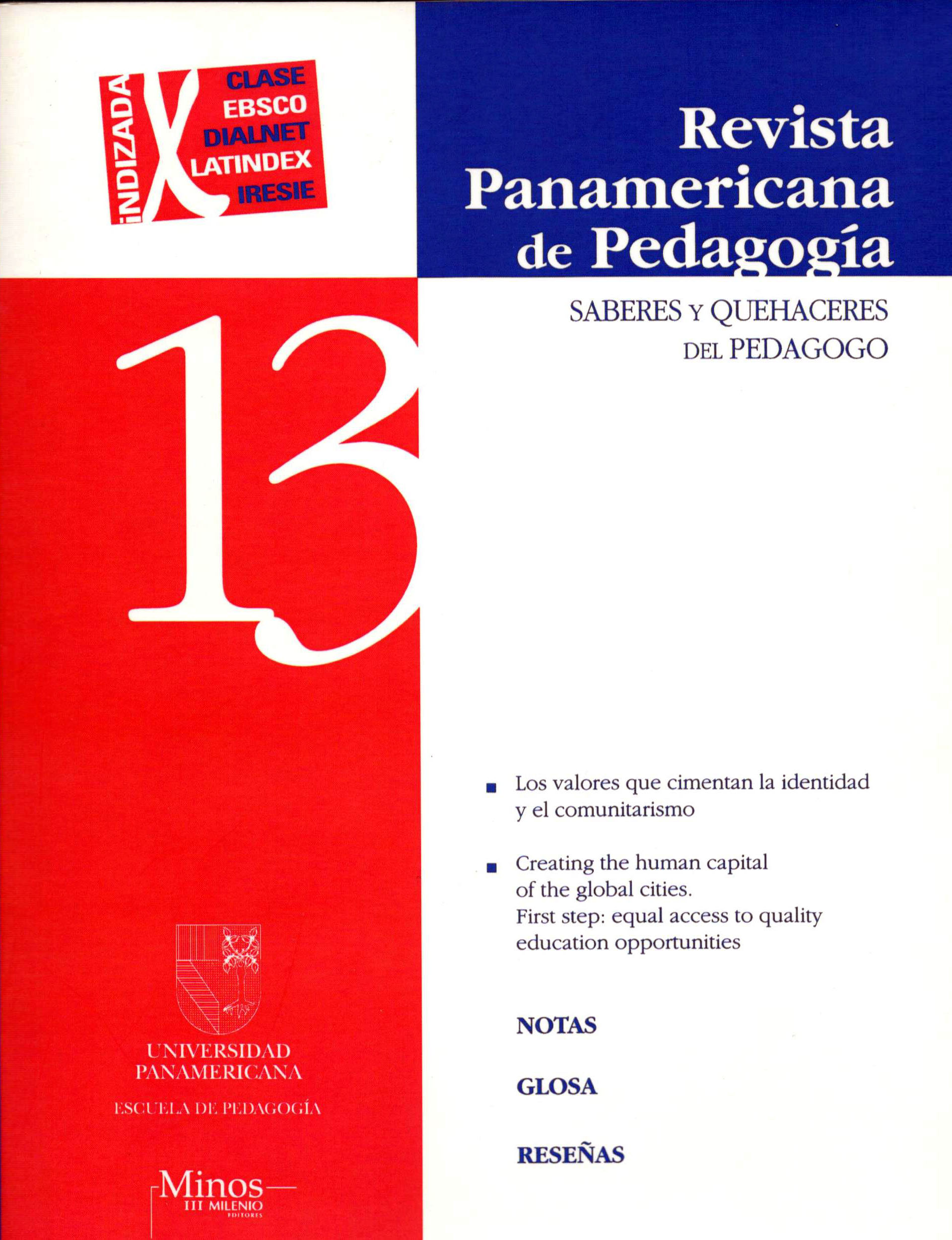CREATING THE HUMAN CAPITAL OF THE GLOBAL CITIES. FIRST STEP: EQUAL ACCESS TO QUALITY EDUCATION OPPORTUNITIES
Published 2008-12-15
Keywords
How to Cite
Copyright (c) 2008 Revista Panamericana de Pedagogía

This work is licensed under a Creative Commons Attribution-NonCommercial-ShareAlike 4.0 International License.
Downloads
Altmetrics
Abstract
Global cities’ economic development depends highly in innovation.Ther efore, the human capitalis the raw material of the Global Era and a successful city is the one that creates, attracts and retains its human capital. The first stepto create thehuman capital is to provide equal opportunities to quality education.However, because of insufficient taxes and large sudden immigration flows that come to global cities, most governments lack the infrastructure and capability to provide these opportunities to all children and, in addition, they consider low income and immigrant children as a high cost problem instead of as a great potential that requires investment. This is when civil organizations emerge to fill the government’s gaps by providing education and development opportunities. This research analyzes the public and private roles in education through a case study: Mexico City and Paris are considered opposite examples of educational systems in terms of government’s participation, whereas Chicago has managed to hold a balance among public, private and civil organizations contribution model that has helped the city upgrade in the education rankings. The best way to keep improving the education quality and equal opportunities is to create consensus, combining civil organizations’expertiseand ability to attract the media attention, with the political willof the government and the commitment of societyin order to generate chances for effective social policy makingin terms of education.

